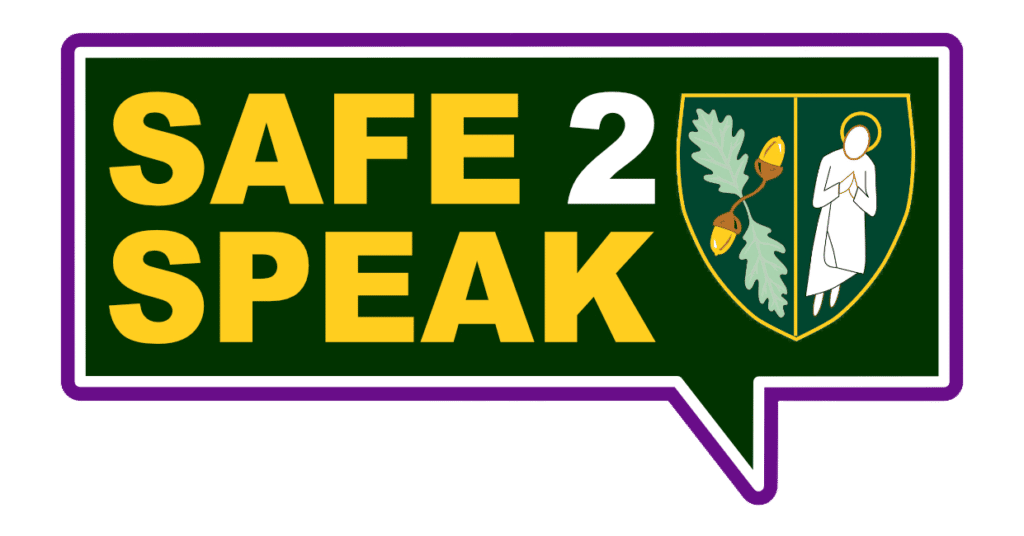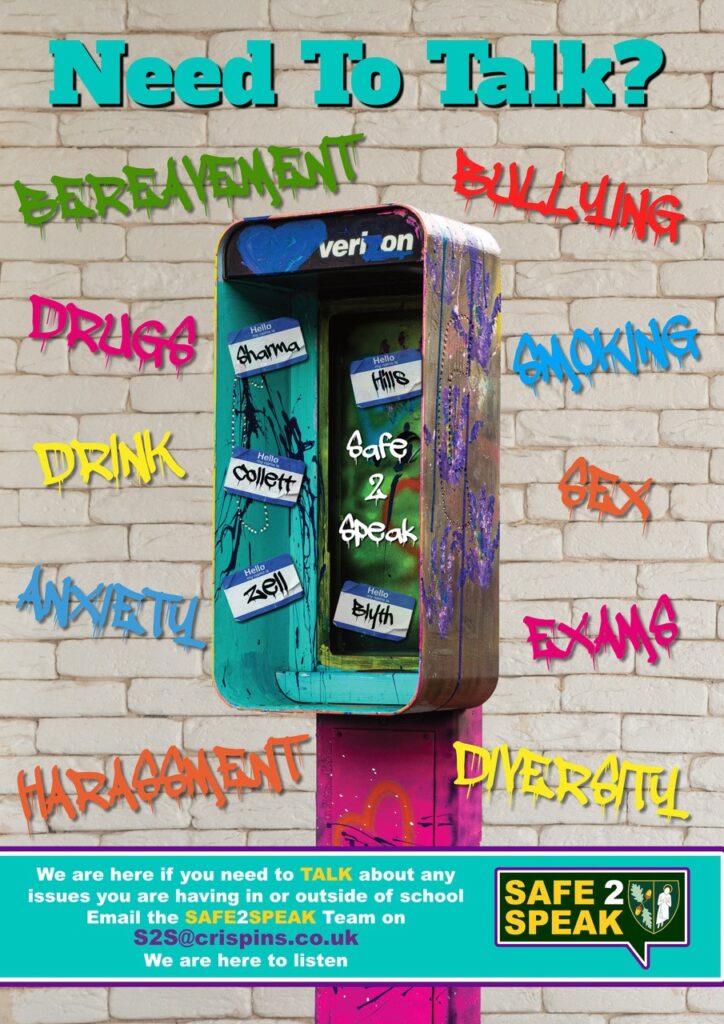Admissions
Start Your Journey
At St. Crispin’s, we recognise and take extremely seriously our moral and statutory responsibility to safeguard and promote the wellbeing of all our students. It is essential that a culture of safeguarding is embedded across the school where all young people feel safe and members of our community are able to report concerns that they have. As part of this commitment, we have an initiative known as

This came together following consultation with students, staff and parents. The name and logo of this comes together to emphasise two key priorities:
There is a reporting system through email, s2s@crispins.co.uk, that allows young people to contact the pastoral team directly. This recognises that some students find it easier to discuss through an electronic format and face to face discussions can then be arranged through this communication whether that be with a member of the school staff, a peer mentor or an external organisation.

As the Senior Designated Safeguarding Lead, my key responsibilities are:
Should you have any questions or wish to discuss anything further regarding safeguarding and child protection at St. Crispin’s, please do not hesitate to contact me on blythr@crispins.co.uk or on 01189781144
Safeguarding is a wide definition, it is not just about protecting children from deliberate harm it includes issues for schools such as:
Child Protection refers to measures that are undertaken to protect specific children who are at risk of suffering significant harm, which could be physical, sexual, emotional abuse or neglect.
Knowing the signs of abuse and how to report them is a vital part of safeguarding students.
Abuse is defined as “a form of maltreatment of a child. Somebody may abuse a child by inflicting harm, or by failing to act to prevent harm. Children may be abused in a family or in an institutional or community setting, by those known to them or, more rarely, by others (eg. via the internet). They may be abused by an adult or adults, or another child or children”. (Working Together to Safeguard Children (HM Government 2018)
Should you have any questions or wish to discuss anything further regarding safeguarding and child protection at St. Crispin’s, please do not hesitate to contact me on blythr@crispins.co.uk or on 01189781144
Should you wish to speak to Children’s Services directly, please see https://www.wokingham.gov.uk/children-and-families/child-protection-and-family-support/report-a-concern-about-a-child/
What we will do if we have a concern about your child
If we are concerned that your child may be at risk of abuse or neglect we must follow the procedures in our safeguarding policy. You can look at the policy on the school website. The procedures have been written to protect all students. They comply with our statutory responsibilities and are designed to support students, families and staff. The procedures are based on the principle that the welfare of the child is the most important consideration. In almost all circumstances, we will talk to you about our concerns and we will also tell you if we feel we must refer our concerns to children’s social care. We will ask your consent to make a referral, but in some circumstances we may need to make the referral against your wishes. We will only do this if we genuinely believe that this is the best way to protect your child, and the fact that you did not consent to the referral will be recorded. Child protection is a very sensitive issue and it raises many questions as well as a range of strong emotions. We will do everything we can to support our students and you can be assured that any action we take will be in the best interests of your child.
What to do if you have a concern about a child
If you are concerned about the safety or welfare of your child or a child you know, you should always act without delay. Many people worry that their suspicions might be wrong, or that they will be interfering unnecessarily. If you wish, you can telephone Wokingham Children’s Services (0118 9088002) for advice without identifying the child. If the conversation confirms that you are right to be concerned you can then give the child’s details. You will be asked for your name and address too, but the agencies will take anonymous calls, so if you really do not want to say who you are, you do not have to. Remember, it is always better to be safe than sorry.